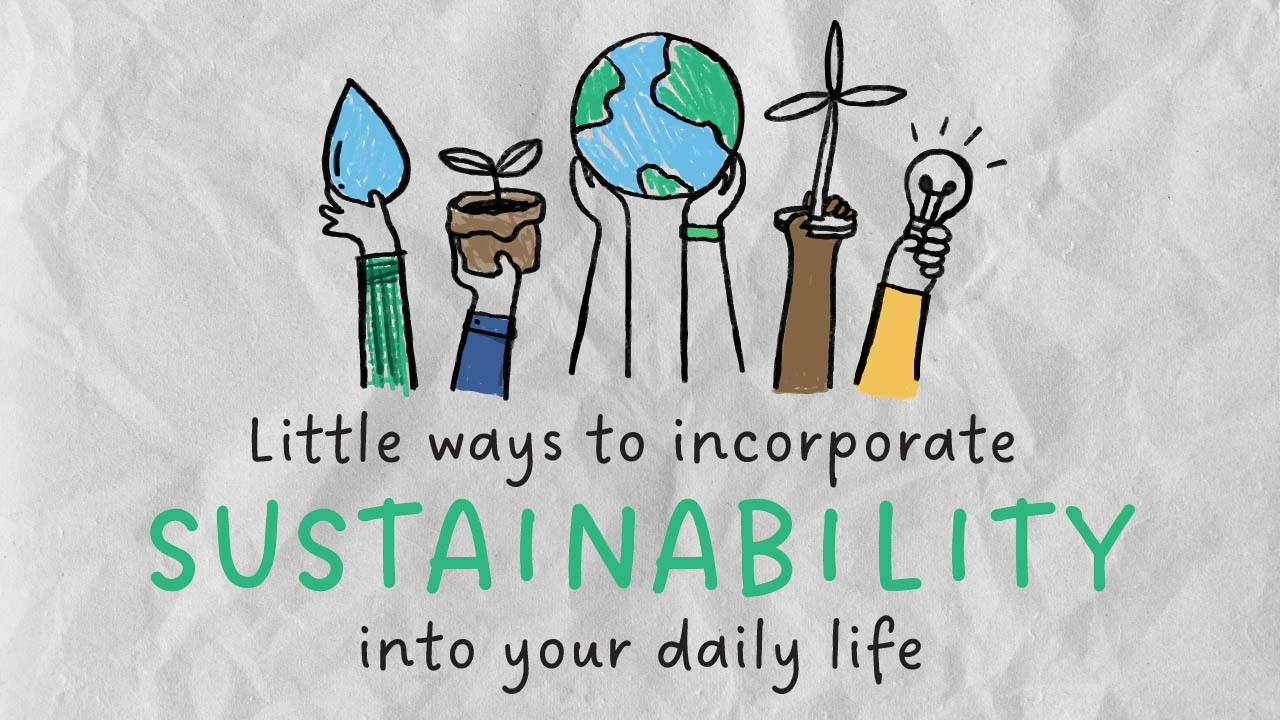Little ways to incorporate sustainability into your daily life
 CREDIT: FSU PUBLICATIONS AND COMMUNICATIONS DEPARTMENT
CREDIT: FSU PUBLICATIONS AND COMMUNICATIONS DEPARTMENTGraphic showing the title: Little ways to incorporate sustainability into your daily life
It’s common to hear the words, “living a sustainable lifestyle,” but what does that really mean? Furthermore, our minds have been sculpted to understand that recycling saves the environment, but do we ever really stop to think about how and what we need to be doing to accomplish this? Recycling on a broad spectrum isn’t the issue, the issue is how can we make a conscious effort to replicate these practices in our homes.
Sustainability Consultant at Fanshawe College, Christine Wardle, said that in order to truly live sustainably, you have to really integrate sustainability into your life and that it’s more than just “not using plastic bags and plastic straws.”
One of the tips that Wardle mentioned was to simply be more conscious in your daily life.
“Using less plastic overall is a really great thing,” Wardle said. “But then, also doing things like buying more sustainable products, choosing to ride your bike or walk instead of driving your car, if that’s feasible.”
A typical example of how students can be more mindful of their daily practices when it comes to sustainability, is when they’re doing a supermarket shop. Purchasing a product in a glass container or a reusable container can help cut down on costs in the long run, and as an added bonus, this will reduce the amount of waste you are accumulating. Yes, the cost might be slightly more in the supermarket for a glass product as opposed to plastic but think about all the other ways you will be able to use that container after the product inside is finished.
“You’re not having to rebuy something that you already have, or you are extending it for so long that the waste isn’t going to go to the landfill,” Wardle said.
Additionally, if students are using a bus system as their main form of transportation, they are actually reducing the amount of pollution caused by carbon emissions, as well as contributing to improved air quality. Walking, biking, carpooling, and using a bus system, are all forms of transportation that can help the environment and enhance your choice of living a sustainable lifestyle.
Another factor that Wardle stressed was composting. Compost is a nutrient-rich mixture of decayed organic matter that farmers and gardeners use as a natural fertilizer. As of 2024, London now has its own city-wide compost program, making it easier than ever to make composting part of your daily life. Wardle also explained that recycling the food back into the ground is good for carbon emissions and waste in general.
When people hear the words, “living a sustainable lifestyle,” it can seem daunting or like an unnecessary task throughout our daily life. This article has broken down ways that you might already be doing or could easily incorporate into your routines to strengthen your life of sustainability.














